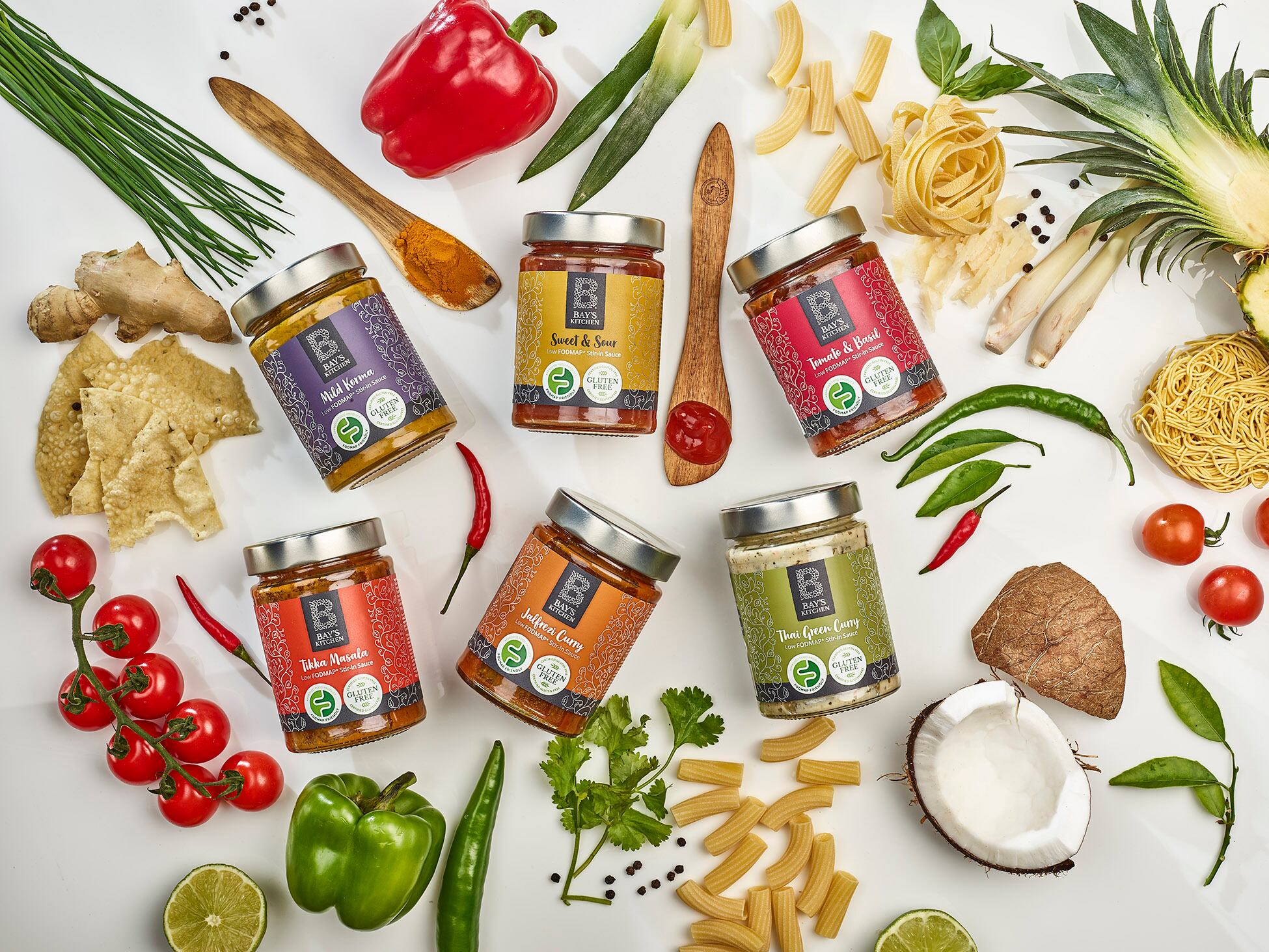While IBS-orientated food ranges may still be something of a niche concept, the condition is altogether mainstream (especially in women) with at least one in five people in the UK said to suffer from the affliction, which can lead to regular stomach cramps and bloating.
A survey from Gut Education Index conducted last year, revealed that 60% of women have been diagnosed with digestive issues at some stage in their life, with over half diagnosed with irritable bowel syndrome (IBS).
Of those that said they suffered from digestive issues; two-thirds adopted a new diet. Bay’s Kitchen founder Hayley Burdett is one of those people.
Low in FODMAP, broad in reach
Diets low in FODMAPs – an acronym given to a group of short-chain carbohydrates that are poorly absorbed in the small intestine – have been scientifically proven to reduce IBS symptoms, with Bay’s Kitchen created after its founder Burdett (nicknamed Bay) struggled to find convenience food products that didn’t contain high FODMAP trigger foods like onion, garlic, wheat and milk.
“My GP told me about the low FODMAP diet and how it’s meant to relieve symptoms by removing hard to digest ingredients,” Burdett tells NutraIngredients' sister title Food Spark.
“There’s a huge list of things you’re meant to take out of your diet, so I went to the supermarket thinking let’s buy some things that are suitable, and there was nothing – pretty much everything had some form of onion or garlic in, which are two of the worst trigger ingredients.”
Bay’s Kitchen first launched into Ocado in 2018, with their initial range comprising three stir-in cooking sauces – tomato and basil, sweet and sour, and jalfrezi – which were joined in October 2019 by a mild korma, Thai green curry and tikka masala.
Now also available in 136 Morrisons stores, Burdett says that their mild korma quickly became the brand’s best-seller, even being favoured by people who aren’t on a low FODMAP diet.
“I think it’s so popular because curries are very difficult to do without onion and garlic, so people miss having them,” explains Burdett.
“It’s also the milder of all the curries we do so it appeals to people who don’t want too much spice. It really rules the korma market – it’s got so much flavour in it compared with mainstream kormas, so people are choosing it who aren’t necessarily on the diet.”
As well as being attractive to non-IBS suffers due to their growing accessibility and healthy connotations, Burdett has positioned Bay’s Kitchen to attract gluten-free consumers and vegans too.
“Consumers with digestive issues are always going to be our main audience – that’s our key focus and it’s why I built the brand.
“But we’ve certified all the products as gluten free so we’re capturing that side of the market as well. All our current sauces and the majority of the new products we’re bringing out are all vegan approved as well, so we’re capturing that part of the market too."
FODMAP challenges
With trends in health and wellness gaining such traction over the last year, Bay’s Kitchen’s potential market size hasn’t been missed by investor Steven Joseph, founder of Barratt sweets maker Tangerine Confectionary, whose six-figure investment will enable Burdett to increase the company’s offering.
“The range is going from six products to 20 in about two months’ time,” says Burdett, with the new lines – to be launched in March – including soups, gravies, stocks and chutneys.
“I’ve been wanting to launch a lot of these products for a very long time. In all of my market research these products have all come out top, and from a personal point of view I know that to find a ready-made gravy that does not have onion in it is nigh on impossible.”
So how do you make a stock or curry sauce taste good without traditional ingredients such as onion and garlic?
Burdett says the answer is through herbs and spices, and some clever replacement ingredients.
“You can use things like chives to get some onion flavour in there, and in some of our new sauces we can use garlic infused oil to get a garlic scent and flavour in, as FODMAPs are not soluble in oil but they are in water,” explains Burdett.
Another challenge when creating low FODMAP food products is in getting the balance of ingredients right so that the product doesn’t become high in FODMAPs.
“For instance, tomatoes are low FODMAP to quite a significant serving size but they’re high FODMAP in larger portions, so you have to be very careful with amounts you’re putting into products,” says Bay.
Get inspiration & support for your NPD and menu development. The original version of this article was published on Food Spark, which supports busy food professionals, marketing and insight teams who work in retail, foodservice and manufacturing.
Food Spark will offer immediate access to the emerging trends, ingredients, personalities and headwinds defining the future of food. Explore more content by visiting foodspark.com.

